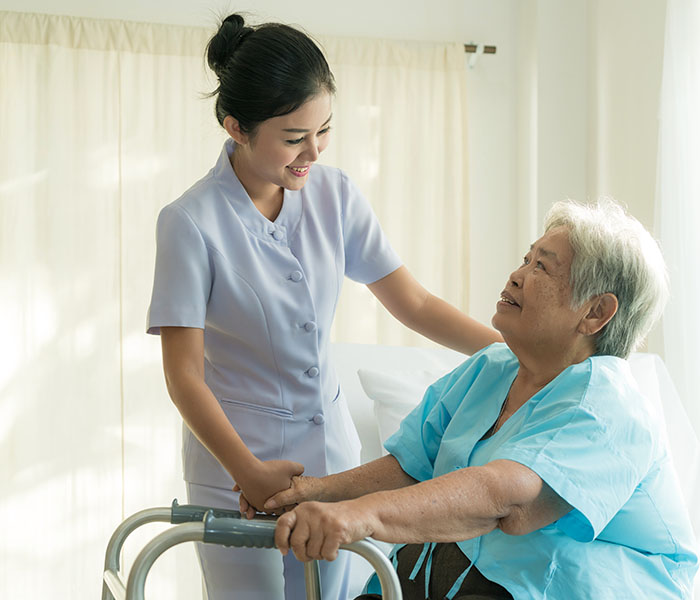Post-Operative Care At Home - Abu Dhabi - Dubai
Post-operative care at home refers to the support and assistance provided to individuals after they have undergone a surgical procedure. It is aimed at promoting healing, managing pain, preventing complications, and facilitating a smooth recovery process. Here are some key aspects of post-operative care at home:
- 1. Wound Care: Proper wound care is essential to prevent infection and promote healing. A caregiver or home health nurse can assist with dressing changes, cleaning the wound, and monitoring for any signs of infection or complications.
- 2. Medication Management: Following surgery, individuals may be prescribed pain medications, antibiotics, or other medications to manage symptoms and aid in recovery. A caregiver can help ensure medications are taken as prescribed, keep track of dosages and schedules, and report any concerns to the healthcare provider.
- 3. Pain Management: Pain management is crucial after surgery to help individuals feel comfortable and aid in the healing process. Caregivers can assist with administering pain medications, applying ice packs or warm compresses as instructed, and providing comfort measures to alleviate discomfort.
- 4. Monitoring Vital Signs: Monitoring vital signs, such as temperature, heart rate, blood pressure, and respiratory rate, is important in assessing the individual's overall health and detecting any potential complications. Caregivers can regularly check and record vital signs and report any abnormalities to the healthcare provider.
- 5. Assistance with Activities of Daily Living: After surgery, individuals may experience limitations in their mobility and ability to perform daily activities. Caregivers can provide assistance with tasks such as bathing, dressing, grooming, toileting, and meal preparation to ensure the individual's comfort and safety.
- 6. Mobility and Rehabilitation Support: Depending on the type of surgery, individuals may require assistance with mobility exercises, ambulation, and rehabilitation activities. Caregivers can provide support, encouragement, and guidance in performing prescribed exercises and following rehabilitation protocols.
- 7. Nutritional Support: Good nutrition is essential for healing and recovery. Caregivers can assist with meal planning, grocery shopping, and meal preparation to ensure the individual has access to nutritious meals and snacks. They can also help monitor dietary restrictions or special instructions provided by the healthcare provider.
- 8. Emotional Support: Surgery and the recovery process can be emotionally challenging. Caregivers can provide emotional support, reassurance, and companionship during this time. They can engage in conversations, provide a listening ear, and offer encouragement to promote a positive mindset.
- 9. Transportation and Follow-up Appointments: Caregivers can assist with transportation to follow-up appointments, ensuring the individual attends scheduled check-ups and receives necessary post-operative care. They can also help with scheduling appointments, keeping track of medication refills, and communicating with healthcare providers.
- 10. Communication with Healthcare Providers: Caregivers play a vital role in communicating with the healthcare team. They can provide updates on the individual's condition, report any changes or concerns, and follow instructions given by the healthcare provider.
Post-operative care at home is tailored to the specific needs of the individual and the type of surgery they underwent. It is important to consult with the healthcare provider or a home care agency to develop a comprehensive care plan that addresses the individual's specific requirements.
By providing post-operative care at home, individuals can recover in a familiar and comfortable environment while receiving personalized attention, support, and assistance to facilitate a successful recovery

